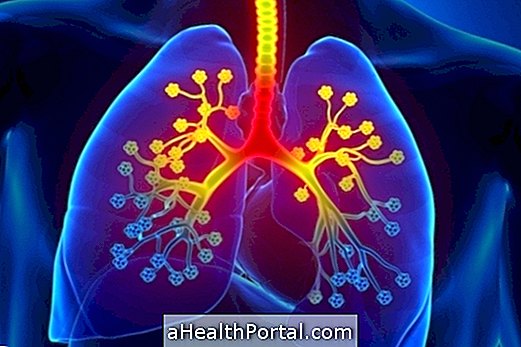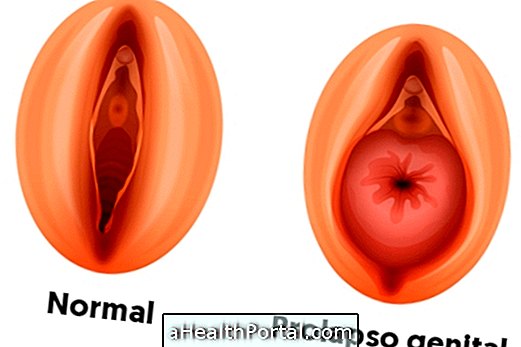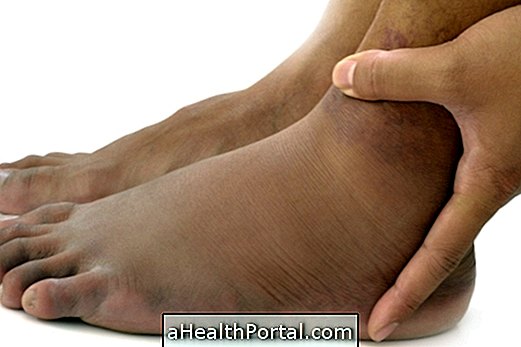There are several causes for memory loss, the main one being anxiety, but it can also be associated with several conditions such as depression, sleep disorders, use of medications, hypothyroidism, infections or neurological diseases such as Alzheimer's disease.
Most causes are preventable or reversible, with life habits such as meditation, relaxation techniques and memory training, but if in doubt, it is important to consult with a neurologist or geriatrician to investigate the possible causes of memory loss and start the correct treatment.

The main causes of memory loss and ways to treat them are:
1. Stress and anxiety
Anxiety is the main cause of memory loss, especially in young people, because times of stress cause the activation of many neurons and regions of the brain, which makes it more confusing and difficult to do even for a simple task, of something.
For this reason, it is common to have a sudden memory loss, or a lapse, in situations such as an oral presentation, a test or after a stressful event, for example.
- How to treat : The treatment of anxiety causes memory to return to normal, which can be done with relaxing activities, such as meditation, yoga, physical exercise or with psychotherapy sessions. For cases of intense and frequent anxiety, it may be necessary to use medications, such as anxiolytics, prescribed by the neurologist or psychiatrist.
2. Lack of attention
The simple lack of attention in some activity or situation makes you forget about information much faster, so when you are or are too distracted it is easier to forget details such as an address, telephone number or where if he kept the keys, for example, not necessarily being a health problem.
- How to deal with : Memory and concentration can be trained, with exercises and activities that activate the brain, such as reading a book, taking a new course, or simply playing a crossword puzzle, for example. Meditation is also an exercise that stimulates and facilitates the maintenance of focus.
3. Depression
Depression and other psychiatric disorders such as panic syndrome, generalized anxiety disorder, or bipolar disorder are diseases that can cause attention deficit and affect the functioning of brain neurotransmitters, being an important cause for memory alteration and may even be confused with Alzheimer's disease.
- How to treat : Treatment with antidepressants or psychiatrist-directed medicines should be started to improve symptoms. Psychotherapy is also important to aid in treatment. Understand how treatment for depression is done.

4. Hypothyroidism
Hypothyroidism is an important cause of memory loss because, when not treated properly, it slows metabolism and impairs brain function.
Memory loss from hypothyroidism is usually accompanied by other symptoms such as excessive sleep, dry skin, brittle nails and hair, depression, difficulty concentrating, and intense tiredness.
- How to treat : The treatment is guided by the general practitioner or endocrinologist, with Levothyroxine, and its dose is adapted to the degree of each person's disease. Understand how to identify and treat hypothyroidism.
5. Lack of vitamin B12
Vitamin B12 deficiency occurs in vegans without nutritional monitoring, people with malnutrition, alcoholics or people who have changes in stomach absorption capacity, because it is a vitamin that we acquire through balanced diet and preferably with meat. Lack of this vitamin alters brain function, and impairs memory and reasoning.
- How to treat : The replacement of this vitamin is made with balanced dietary guidelines, nutritional supplements, or in case of malabsorption by the stomach, with vitamin injections.
6. Use of remedies for anxiety
Some medicines can cause mental confusion and memory impairment. It is more common in people who use sedatives often, such as Diazepam and Clonazepam, for example, or it can be a side effect of medicines of various kinds, such as anticonvulsants, neuroleptics, and some labyrinthitis.
These effects vary from person to person, so it is always important to report to the doctor the remedies used if there is suspicion of a change in memory.
- How to treat : It is advised to talk with the doctor for the exchange or suspension of possible medicines associated with memory loss.
7. Drug use
Excess alcohol, and the use of illicit drugs such as marijuana and cocaine, for example, in addition to interfering with the level of consciousness, have a toxic effect on neurons, which can impair brain functions and memory.
- How to treat : It is important to stop using illicit drugs and consume alcohol in moderation. If it is a difficult task, there are treatments that help against chemical dependence, and are oriented at the health clinic.

8. Sleep less than 6 hours
Changing the sleep cycle can impair memory, as the lack of daily rest, which should be on average 6 to 8 hours a day, makes it difficult to maintain attention and focus, as well as hamper reasoning.
- How to treat : Better sleep can be acquired with regular habits such as adopting a bedtime and bedtime routine, avoiding coffee consumption after 5 pm, and avoid using a cell phone or watching TV in bed. More serious cases can be treated with neurologist-directed anxiolytic drugs.
Check out the main strategies for regulating sleep and when it is necessary to use medicine.
9. Alzheimer's Dementia
Alzheimer's disease is a degenerative brain disease that occurs in the elderly, which impairs memory and, as it progresses, interferes with the ability to reason, understand, and control behavior.
There are also other types of dementia that can also cause memory changes, especially in the elderly, such as vascular dementia, Parkinson's dementia or Lewy corpuscle dementia, for example, which should be differentiated by the physician.
- How to treat : After the illness is confirmed, the neurologist or geriatrician can initiate anticholinesterase drugs, such as Donepezila, in addition to indicating activities such as occupational therapy and physical therapy, so that the person can maintain his functions as long as possible. Learn how to identify and confirm if you are Alzheimer's.
10. Mental confusion
Mental confusion leads to altered thinking and memory, and is more common in the elderly or in people in hospital settings after surgery, serious infections or serious illnesses, such as heart failure, kidney failure or brain trauma, for example.
- How to treat : The treatment is done according to the cause, and the improvement of the person's clinical condition may be enough to improve the reasoning capacity and memory.
How To Improve Memory Naturally
Eating foods high in omega-3s, such as salmon, salted fish, seeds and avocados, for example, helps improve memory and concentration, so you should focus on a healthy, balanced diet that contains the right foods. Check out other examples of food that improves memory in this video by nutritionist Tatiana Zanin:

























